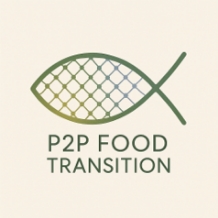
P2P Food Transition
Director
Key partners
Timeframe
Project description
P2P Food explores alternative pathways for digitalization and economic transformation in response to systemic crises. It focuses on cosmolocal production—a model that combines global digital commons with local, sustainable manufacturing—and pilots its application in rural, small-scale agricultural settings.
The project leverages the Church’s institutional infrastructure as a platform for scaling cosmolocalism, aiming to bridge two underconnected but potentially synergistic domains:
- Cosmolocalism: A commons-based, digitally enabled, and ecologically sustainable mode of production.
- Religion and Sustainability: The Church’s role as a globally integrated yet locally embedded institution capable of supporting transformative change.
The initiative is the first phase of a broader action-research program, BIRTHING the P2P Society.
Project goals
- Build a global partner network of scholars, churches, rural communities, and tech innovators.
- Explore the Church’s potential as an institutional backbone for cosmolocal production.
- Pilot cosmolocal practices in a Global North–South comparative framework.
- Develop and test open-source agricultural technologies aligned with local needs and religious values.
- Advance sustainability transition theory by analyzing how cosmolocalism can scale through church networks and support food systems transformation.
- Foster interdisciplinary collaboration across agrarian studies, religious studies, commons theory, and sustainability governance.
Expected impact
Micro-level: Empower rural communities through self-sufficient, resilient, and locally adapted agricultural practices.
Meso-level: Enhance the operational capacity of church-related networks to deliver on their social and ecological missions.
Macro-level: Contribute to a broader societal shift toward a commons-based, post-growth economy.
Additional impacts include:
- Bridging cultural and ideological divides between secular and faith-based communities.
- Revitalizing the dialogue between technology and theology through the concept of integral ecology.
Creating open-access training materials and digital infrastructure to support the replication of cosmolocal practices.